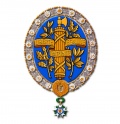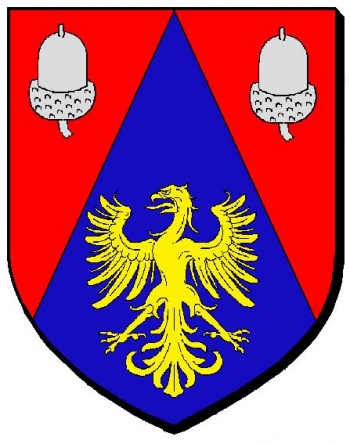Bermering: Difference between revisions
Jump to navigation
Jump to search
Knorrepoes (talk | contribs) m (Text replacement - "Literature : " to "'''Literature''': ") |
Knorrepoes (talk | contribs) m (Text replacement - "/Arms of " to "/Arms (crest) of ") |
||
| Line 6: | Line 6: | ||
Département : [[Moselle]] | Département : [[Moselle]] | ||
[[File:Bermering.jpg|center|350 px|alt=Blason de {{PAGENAME}}/Arms of {{PAGENAME}}]] | [[File:Bermering.jpg|center|350 px|alt=Blason de {{PAGENAME}}/Arms (crest) of {{PAGENAME}}]] | ||
{| class="wikitable" | {| class="wikitable" | ||
Revision as of 07:41, 16 November 2022
French heraldry portal
This page is part of the French heraldry portal |
Heraldry of the World |
|
French heraldry:
Overseas territories:
|
Selected collector's items from France:
|
BERMERING
Département : Moselle
| French | D'azur à l'aigle d'or; chapé cousu de gueules chargé de deux glands d'argent. |
| English | No blazon/translation known. Please click here to send your (heraldic !) blazon or translation |
Origin/meaning
The arms combine elements of the two abbeys to which the village historically belonged. The eagle is taken from the arms of the St. Arnould abbey and the acorns from the arms of the Abbey of Saint Martin de la Glandière in Longeville lès Saint Avold. The pile refers to the patron saint of the village, St. Martin of Tours (for cutting his cloak for a beggar).
Literature: Image from http://www.armorialdefrance.fr
Contact and Support
Partners:
Your logo here ?
Contact us
© since 1995, Heraldry of the World, Ralf Hartemink 
Index of the site












